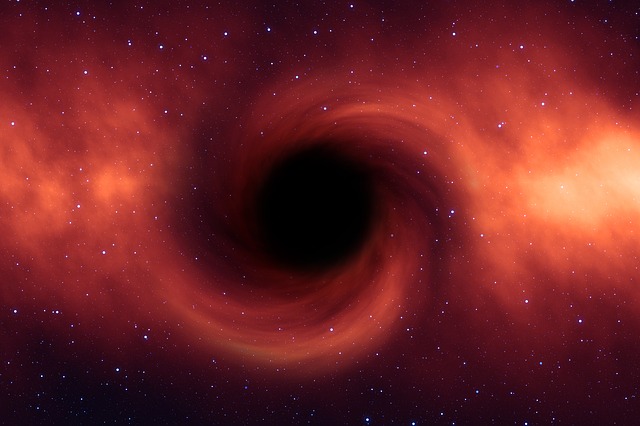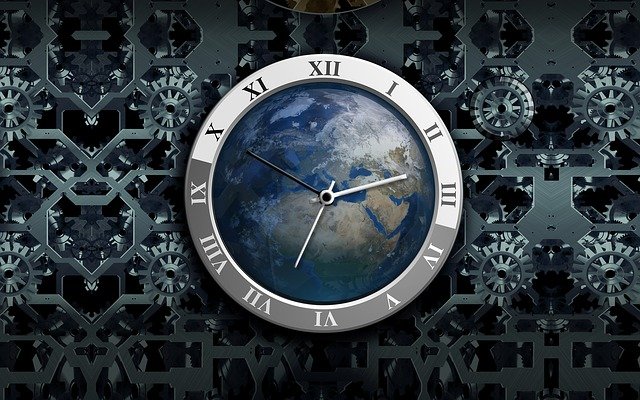*This post may contain affiliate links. This means we may make a commission if you purchase an item using one of our links*
Science fiction tells us that black holes could act as portals to different dimensions in space or that they could be a vehicle for time travel. These mystical entities indeed warp spacetime, a large part of the reason being the influence of their gargantuan mass on their surroundings which will slow down time the closer you are.
Continue reading to discover why black holes warp the fabric of space and how this impacts the observers’ experience of time. Discover how long one minute spent in a black hole would compare to time spent on Earth.
Why Do Black Holes Warp Spacetime?
Table of Contents
When a star runs out of gas, it starts to die, causing an inward collapse that happens at rapid speeds. As it collapses, the star experiences a catastrophic release of its outer materials, known as a supernova. The star then continues to collapse until it forms a singularity.
A singularity is a seemingly impossible contradiction where the mass possesses zero volume but an infinite density. And it is this impossibility that causes a black hole to form. This massive point of gravity can bend spacetime because of the singularity or incredibly dense point.
The pull of a black hole is so strong that nothing can escape its clutch; everything is pulled inwards, including spacetime. If you could travel close to a black hole, you would experience time differently from how it is here on Earth.
However, the difference an outsider would experience and what you would experience will be different. Your speech and even the time of the clock on you wristwatch will remain the same but, an outside observer would experience your image and voice in a much slower frequency as your ‘proper time’ is different from theirs.
In essence your bodily functions and time would continue to be the same as you would normally experience it, as was the case in the movie Interstellar where time functioned differently for outside observers despite their experiences with proper time being the same.
As you reach the event horizon – the edge of the black hole – time would slow down on an astronomic scale; the further into the black hole you traveled, the more distorted time would become.
Some theories suggest that if you could travel into a black hole, you would simultaneously see images of the past and future. This idea aligns with the multiverse theory of existence. While this is an exciting concept, we have no way to prove it, as travel into a black hole is impossible.
Do Black Holes Warp Spacetime Infinitely?

Albert Einstein proposed the theory that massive objects, such as black holes and neutron stars, could warp spacetime thanks to their immense gravity. Science has since confirmed this theory by observing these dark giants.
When scientists observed light behind a black hole, they concluded that Einstein’s theory must be true. Since there is no way for light to pass through this singularity, the black hole must have distorted spacetime to the point where astronomers could see X-ray explosions behind it.
According to Einstein’s theory, an object that is massive enough will warp spacetime. When this happens, spacetime begins to travel in a curved path rather than a linear one. Thanks to the sheer gravity of this construct, all objects have no choice but to follow the new course, and therefore we experience a warping of spacetime.
Gravity doesn’t affect light directly because light has no mass; still, it does follow the curvature of spacetime. Therefore, if a black hole’s gravity affects spacetime, then the light will have no choice but to follow the new curve. The reason why we say black hole bend spacetime infinitely is that light never reemerges from the singularity.
This means that within a black hole is infinite spacetime traveling in all directions (that is, once you move past the event horizon). Considering that matter continues to fall into the black hole where there is an infinite amount of space and time, we could assume that it contains another universe, hence the multiverse.
Why Does Time Go Slower In A Black Hole?

In general relativity, everything is modeled through a concept known as spacetime. This means that we combine space and time into a four-dimensional that we call manifold. Tracking the curvature of the spacetime manifold, we can assess gravity’s effects on both space and time.
This manifold has several basic vectors that help us to understand and monitor any point in the system. Picture it like a graph, with the passing of time a steady series of points traveling equal distances over a set period.
If this sheet or manifold is curved, certain points become closer while others drift apart. Thus, the pace of time is no longer even or linear; both length and direction no longer have the consistency of the flat manifold where spacetime is even.
The curved spacetime of a black hole is such that these vectors become shorter as the observer moves toward the black hole. As one approaches a black hole, time progresses more and more slowly until it stops at the event horizon.
How Long Is 1 Minute In A Black Hole?
Time slows down in a black hole thanks to a phenomenon known as gravitational time dilation. This time dilation occurs when an immense gravitational field causes a change in the passing of time. Einstein’s theory predicts that the closer you move toward the source of this gravitational pull, the slower time will become.
If you could stand at the edge of the supermassive black hole in the center of our galaxy, then 700 years would pass by in a single minute. The closer an observer moves toward a black hole, the more dilation of time they would experience. One hour for a black hole observer would equate to 100,000,000 years for a person on Earth.
Therefore one minute in a black hole would be roughly 1,700,000 years.
Summary
Black holes are one of the Universe’s biggest mysteries, and scientists still have much more research to conduct before they can confirm several possible theories.
Still, we have already seen evidence that the intense gravity of these objects warps spacetime around them, so we know that time would undoubtedly move differently if you could get close enough to a black hole.
References
How Do Black Holes Really Work? | Britannica
Black Hole Warps Space so Much That Astronomers See Light Behind It (businessinsider.com)
Black hole news: Standing on edge of black hole would cause 700 years to pass in 1 minute | Science | News | Express.co.uk
Why Time Slows Down Near a Black Hole: The Physics Explained – Profound Physics


There really is some shocking physics in this article. I have a degree in Theoretical Physics with a special interest in gravity. Saying that black holes ‘warp’ spacetime ie cause it to become curved is true but you give the impression that this is confined to black holes. All objects that have mass have a gravitation field around them which extends out to infinite distance and curves or ‘warps’ spacetime, although with modest sized objects the curvature or ‘warp’ effects are so small that they are difficult to measure. However with a mass such as the earth, gravitational spacetime curvature phenomena and the change in the rate of time as observed by a near-earth observer who watches time passing at a distance observer is easily measurable, but still really small. Any further questions and I will help as best I can.
Also when you say ‘time slows down’ you have to be very careful to say exactly what you mean. Some readers might think that would see time going slow in the sense that they would see their own heart rate going slow or that the frequency of their speech would be decreased and length of their speech sounds would be increased. This is most definitely not the case. The ‘time’ we are talking about here, which is the time measured by your own wristwatch that travels with you always, as do parts of your body, is called ‘proper time’ and it never changes. It is said to be an invariant. Mind you, if you decide to fall feet-first into a large non-rotating (for simplicity) black hole then the rate of time at your feet and your head would not be the same, which might cause some problems. The difference depends on how tall you are and on the mass of the black hole. The effect is much smaller with a very large black hole and probably dangerous with a small one. Since ‘time dilation’ as mentioned in the article also is cause by travel at extremely high speeds, this speed-related would have enormous additional effects as you journey down close towards a black hole, particularly a spinning one. But once again, proper time remains an invariant so high speed travel does not affect your own observed speed of your wristwatch or processes in your body.
Correction: In the previous post, I should have written that the traveller’s speech will not sound altered in frequency or duration/speed _as she herself hears it_.